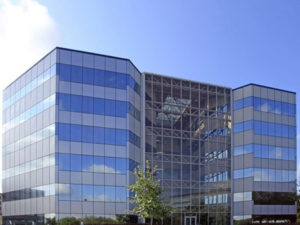by Curtis Williams | Wed Jan 23 2019
Methanol Plant
Will Trinidad and Tobago embrace the use of methanol in its fuel mix?
That is the question that stakeholders will try to answer as the Methanol Institute holds a fuel strategy planning meeting on Thursday at the Hyatt Regency Hotel.
According to the Institute, it is seeking to introduce the concept of blending methanol with gasoline to produce a cleaner fuel for the country’s drivers.
The conference is being held as ‘part of the dialogue around Trinidad and Tobago’s new fuel strategy planning to introduce the concept of blending methanol into the gasoline fuel pool.’
The Methanol Institute noted that following the closure of Petrotrin’s Pointe-a-Pierre refinery, T&T finds itself in the position of having to import more fuels, for both on-island consumption as well as for distribution to the neighbouring islands, adding potential price and supply risk. Meanwhile, Trinidad is one of the largest methanol-producing countries in the world, yet exports virtually all of this high-value product.
“This policy forum will feature a panel of Methanol Institute experts presenting how clean methanol as a transportation fuel is utilised around the world, and its potential to reduce Trinidad’s anticipated reliance on imported fuels, improve its transportation fuel standards, and add on-island value to the fuels which will be re-exported,” the Methanol Institute noted.
It added that the goal of this event is to introduce the methanol-gasoline blending concept to key policymakers and representatives of local industry in Trinidad and Tobago and facilitate constructive discussions around the topic.
According to the institute, Methanol is a clean burning, high octane blending component made from alternative non-petroleum energy sources such as natural gas, coal and biomass. It has been commercially blended into gasoline at various times and locations since 1980.
Although methanol has been widely manufactured for use in chemical production, methanol has also been successfully used for extending gasoline supplies in many gasoline markets around the world. Unlike some other alcohols, methanol blending in gasoline has been economical without government subsidies or fuel blending mandates.
“Besides providing non-petroleum alternative energy into gasoline supplies, blending methanol also delivers a clean burning high octane to the oil refiner’s gasoline supplies that can be used reduce the refiner’s energy consumption as well as improve gasoline yields from the crude oil.
Methanol’s high octane and oxygen content produce a cleaner burning gasoline which significantly lowers vehicle exhaust emissions. When produced from natural gas or biomass, methanol fuel has a lower carbon intensity (or carbon footprint) than gasoline produced from petroleum,” the institute stated.



